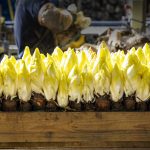Future-proof and sustainable refrigeration system
Optimal storage conditions result in chicory roots of maximum quality, even after 10 to 12 months of storage. As a result, they give excellent chicory crops during the growing process. No wonder that Gijs van Dongen, owner of the chicory production company Nature’s Gold, took the custody to himself, to maintain maximum control over the quality of his product. His 4 new cold stores are provided with a future-proof and sustainable cooling system of Equans.
For Van Dongen, it was all about certainties. Not only to make sure he would have good quality roots at the end of the storage process. But also, to be well prepared for the European regulations for phasing out synthetic refrigerants. The natural refrigerant ammonia offered certainty in its broadest sense. “Energetically, ammonia is the best refrigerant available. It offers a financial advantage in the long term and the short term. This made Van Dongen eligible for the Energy Investment Deduction (EIA), a tax benefit that allows him to deduct a large part of the investment from his taxable income”, says Frank Vanaert, Project Manager at Equans. “In addition, the properties of ammonia make it possible to achieve minimum temperature differences in the storage. Those stable conditions are exactly what chicory roots need.”
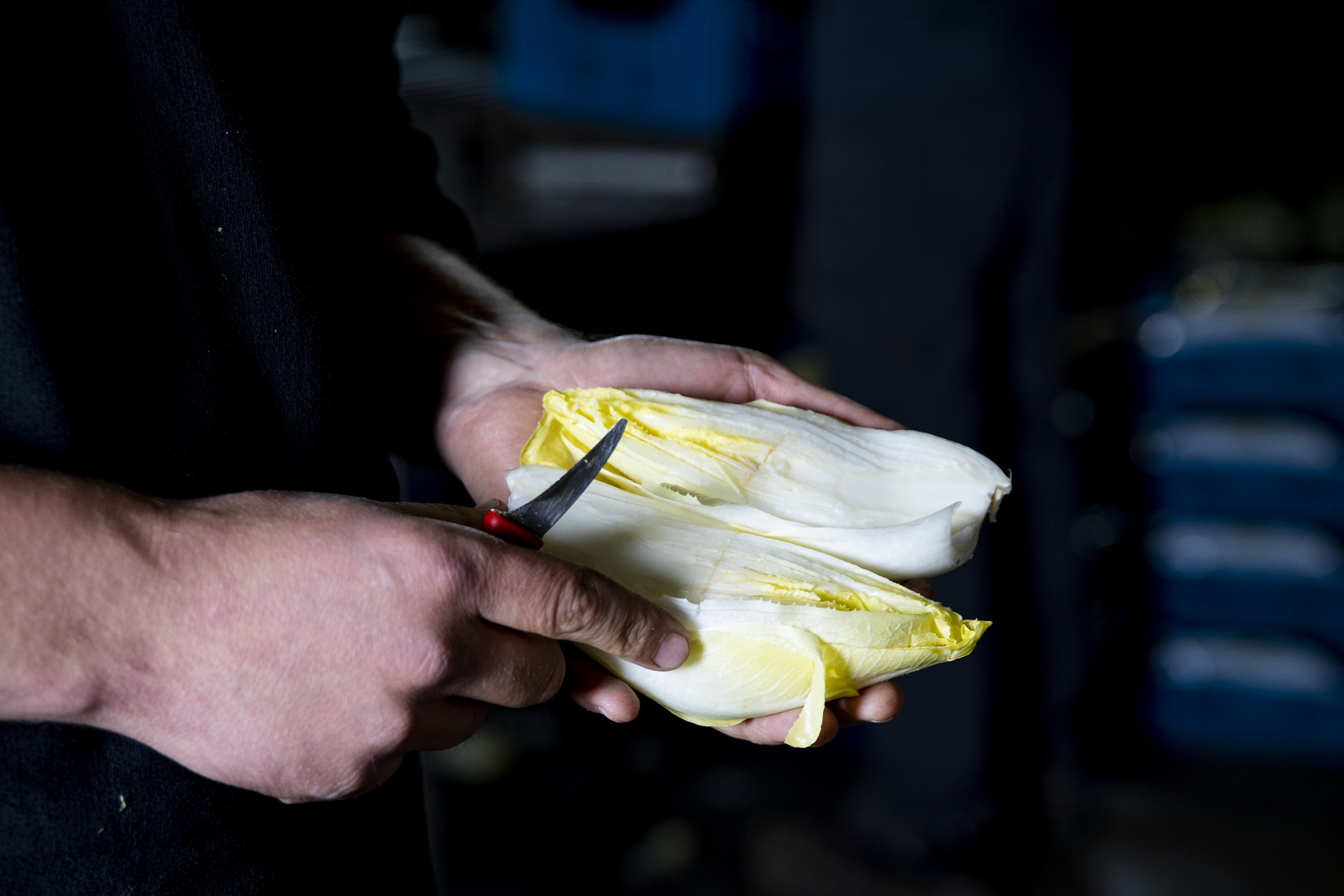
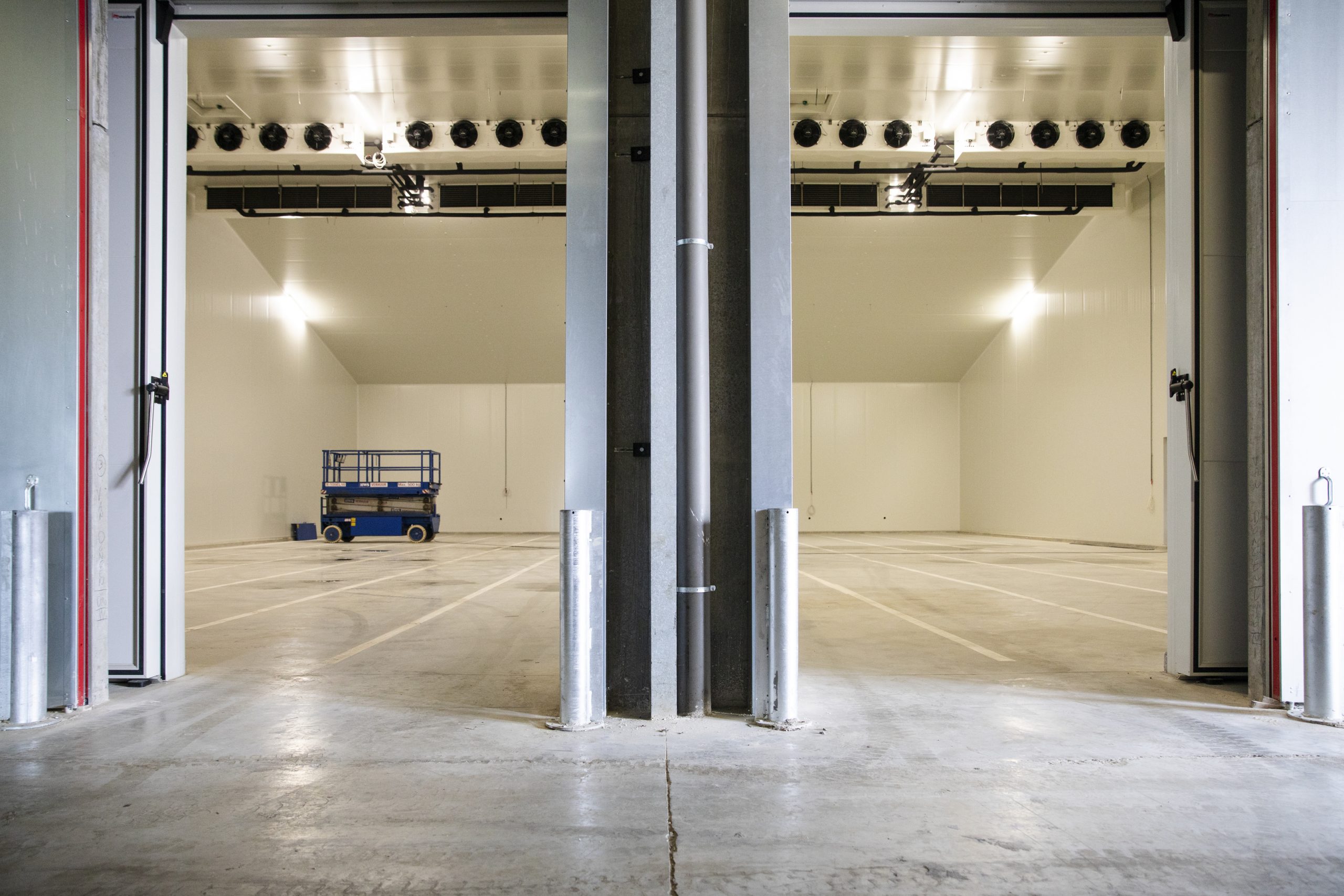
Cooling stops the activity in chicory root. With a temperature of -2°C in the cold stores, 4 million kilos of Van Dongen’s chicory roots a year ‘fall asleep’. Being stored in these optimal conditions, every chicory root retains the necessary energy until the growing process to make a good quality chicory crop. But the chicory root is a lively product. It wants to sprout and therefore it produces heat. “In the cold stores there can be a temperature difference of 1°C”, Van Dongen says. “Bringing in extra cold air dries out the roots in crates on the outside or on top. With losses and high energy costs as a result. Therefore, equal temperatures in the entire cold store are essential.
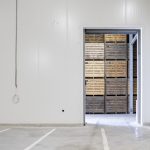
Besides that, an equal air distribution is important too, concluded Vanaert. “It’s not easy to control air, especially in such big cold stores Nature’s Gold has. The humidity for the thirsty roots is constantly 100%. That humid, cold air is all over the place, resulting in frozen fan blades and a layer of ice on the crates on top. Nevertheless, we can prevent these problems with mechanical cooling.”
The secret behind the equal air distribution? Energy-saving EC motors that are adjustable in speed and alternate in power. Vanaert: “First they blow with maximum power. A couple of minutes later their capacity is just 70%, 50% and so on. That saves a lot of energy and more important: it makes sure that the cold air reaches every corner. ‘Hot spots’ now belong to the past. The stacking method also contributes to homogeneous air distribution. An extra gap of 30 centimeters between the stacks of crates ensures a continuous flow of air along all the roots. The chicory roots left and right are just as cold as those on top and bottom. Not a single root will sprout due to changing temperatures.
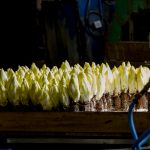
“Controlling temperature, air humidity and air circulation will be more important in the near future”, Van Dongen says. “Climate change causes extreme weather conditions and because of that the quality of the roots harvested change all the time. Thanks to the optimal conditions in the cold stores, even chicory of deteriorating quality will recover during storage. This allows me to store all my chicory roots for one year, without loss of quality and with much lower energy costs.
After the storage phase, the growing of the chicory starts. Nature’s Gold plants the chicory roots again and covers them with a small layer of ground. For these cold stores Equans engineered an ammonia refrigeration plant as well.
Significantly lower energy consumption
Vanaert: “The cooling block was custom made, so we could work with ammonia instead of glycol. As the system works non-stop, it produces a lot of heat. A heat recovery system uses the residual heat of the system to warm the production area. That reduces the gas and energy consumption.” Both cooling systems consume 40% less energy than any other system.”
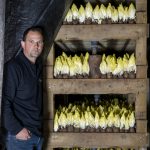
“All praise for Equans”, Van Dongen concluded.

